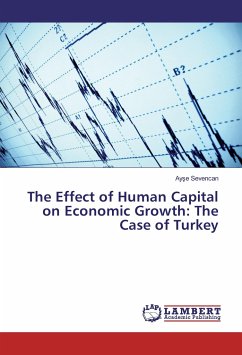Some economist have predicted that the slower growing economics will eventually converge with the faster growing economy at some point in the future. This is known as the convergence hypothesis. In this book, we test this hypothesis for Ghana and the Western Europeans countries with UK been a proxy, using time series data to determine whether or not it holds. We determine how fast or slow this convergence process is by using the returns to scale concept on Ghana's economy and latter account for factor that determines economic growth in sectors. The book supported the null hypothesis of convergence i.e. Ghana is catching up with the Western European. The book also shown that Ghana growth accounting exhibit decreasing returns meaning convergence is relatively slow and also signifies that Ghana is not on a balanced growth path. The book showed a negative relationship between GDP and labour both in the long run and short run relationship. Again the book showed a positive relationshipbetween GDP and capital, Agric and Industrial sector. Lastly, the study showed a negative relationship between GDP and AID and Service in the long run.
Bitte wählen Sie Ihr Anliegen aus.
Rechnungen
Retourenschein anfordern
Bestellstatus
Storno








